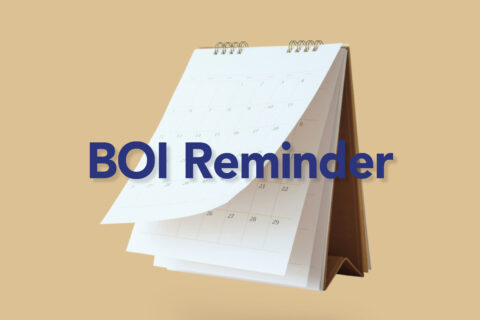1. Each partnership must designate one “partnership representative” to serve as the sole contact between the partnership and the IRS. The partnership representative replaces the TEFRA “tax matters partner.” The partnership must designate the partnership representative for each tax year and must make the designation on the partnership’s return each year. The partnership representative does not necessarily need to be a partner. The partnership representative has broad powers to negotiate and reach agreements with the IRS. Unlike the TEFRA rules, the BBA rules provide that partners will have no statutory right to participate in tax audits or litigation, no right to opt out, and no partner-level defenses. There may exist partner-level modifications to a tax assessment, based on partner-level tax characteristics.
2. There is provided an election out of the BBA rules for certain partnerships that issue 100 or fewer K-1s, provided that each partner of the partnership is an individual, a C corporation, a foreign entity treated as a C corporation, an S corporation or the estate of a deceased partner. The owners of the S corporation are considered in the determination of whether the 100-or-fewer threshold is met. The election out must be made annually on a partnership’s timely filed return, including extensions. As a result of the election, the audit of partnership items is made at the partner level.
3. Generally, the partnership must pay any increase in tax, also called the imputed underpayment, resulting from an audit. The partners in the “reviewed year” could be different from the partners in the “adjustment year,” which is the year the partnership would be required to pay the nondeductible tax. As an alternative to the partnership paying the imputed underpayment, the BBA rules allow a partnership to elect, not later than 45 days after the date of the notice of the final partnership adjustment (“FPA”), to pass the adjustment through to the reviewed year partners (“the push-out election”). The proposed regulations provide very specific requirements for push-out statements to partners.
Latest Blog
DALLAS, TX – [February 21, 2025] –HM&M, a leading accounting and advisory firm, is proud to announce that ...
Updated February 14, 2025 A complex trust or estate may make an election under Internal Revenue Code Section ...
As this reminder was going to press, a Texas-based federal court issued a preliminary injunction prohibiting the federal ...
HM&M Updates
DALLAS, Dec. 11, 2024 – Springline Advisory, a trailblazing financial and business advisory firm, is proud to announce its partnership ...
Last month, Senior Manager, Pearl Balsara was invited to speak at the 2023 FPA DFW Annual Conference in ...
We are pleased to announce the winners of the 2022 HM&M Excellence Awards. Ronna Beemer, Keith Phillips, and ...









